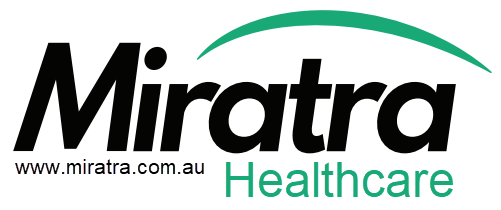- Empty cart.
- Continue Shopping
We Agree Payroll Fraud is a Cause of Concern

illusion is when someone steals money from a business through the payroll system. Perpetrators of payroll fraud can be employees, managers, or business owners. An employer who commits payroll fraud may face audits/investigations, civil monetary fines, and imprisonment. Additionally, they might face other payroll fraud punishments, such as having to make repayments to the IRS. When an employer hires a new employee, the employee is required by law to complete tax forms, which are subsequently incorporated into the employer’s payroll system.
- In general, the more money a fraudster steals, the harsher the legal repercussions.
- For example, a worker might leave early and ask a “buddy” to punch out for him or her several hours later.
- Payroll audits are compulsory if you want to catch fraudulent activities in payroll.
Install security cameras at work sites so that any potential workplace injuries are recorded as evidence. But, some staff may figure out loopholes in the commission schemes to avail the commissions or bonuses they didn’t earn honestly. This is a commission scheme fraud which is punishable as payroll fraud. In this scheme, employees collaborate with a payroll department employee to boost the amount of their hourly pay within the payroll system. Sometimes the deception takes place days before payday and is then changed back to the legitimate rate to evade detection. Employee payroll fraud is a challenging issue for U.S. small business owners.
Falsifying Wages
It happens by mistake when employers misclassify employees unintentionally. Make sure to review your company’s commissions policy on a regular basis. In addition, keep an eye on the records of the employees earning the most commissions. You might even consider auditing their sales to ensure they’ve earned all of their commissions. If an employee or employer commits payroll fraud, they can open themselves up to a lawsuit .
Often, employers think payroll frauds can be committed only internally, but scams like W-2 and payroll diversion schemes have third-party perpetrators. As an HR manager, you must know the most common types of payroll fraud. Here are some common payroll frauds that can be avoided by being vigilant. This is one of the most challenging payroll frauds to detect and curtail. Employees in executive positions, such as CEOs and departmental heads, can be guilty of personal expenses fraud.
Workers’ compensation fraud
It’s most often carried out by managers and senior employees of the payroll department who have access to the systems through which employees are paid and can use that access to issue false payments. It can also be carried out by employees who make false claims for payment and by employers who classify full-time employees as independent contractors to avoid paying payroll taxes and insurance. This type of fraud is carried out by employers, sometimes accidentally, but often deliberately. It occurs when employers classify a full-time, salaried employee as an independent contractor (“1099 worker”) to avoid paying payroll taxes and workers compensation insurance. This lowers staffing costs and allows the company to submit lower bids than other companies who are classifying employees correctly. The term ghost payroll refers to situations in which companies are unwittingly paying nonexistent employees.
Marina del Rey Man Arrested for Allegedly Fraudulently Obtaining … – Department of Justice
Marina del Rey Man Arrested for Allegedly Fraudulently Obtaining ….
Posted: Tue, 13 Jun 2023 07:00:00 GMT [source]
A Ghost employee is a person who is on the payroll but does not work for the company. The employee is entitled to all the bonuses and benefits just like other employees, however, the money is going straight to the fraudster’s account. Timesheet fraud involves paying employees incorrectly for the hours they work.
Types of Payroll Fraud
Thus, they calculate wages at the end of the week by multiplying each employee’s hours by the hourly rate. To earn more wages while working fewer hours, employees falsify timesheet data. They commit this offense by logging in false hours or making their colleagues fill in for them in their absence. Depending on the region, penalties range from heavy fines to prison sentences.
What is a ghost employee?
What is “Ghost Employee?” The ghost employee is an employee added to your payroll to collect a wage, even though they aren't employed by your company. It could be a deceased person who is not removed from your payroll by accident, but it far too frequently is a person added purposefully to commit fraud.
Intentional misclassification can be deemed payroll fraud, which can lead to legal ramifications for the employer. In this payroll fraud, either employees’ grades are altered, or their hourly rates are changed to qualify them for a higher payment than they are entitled to. This fraud happens due to the collaboration of employees with the human resources (HR) and payroll departments.
Review of payroll reports
Managers should review and sign off on time sheets each payroll period. If duties are divided responsibility wise amongst the employees then it gets challenging to crack the internal controls. Another most common payroll fraud is falsifying efficiency and effectiveness in production.
It is also impossible to dispute a timesheet since it is impossible to track the actual working hours of employees regularly. Payroll frauds generally occur when employees intentionally manipulate the payroll system to generate income more than what they earn. However, it is not always just the employees who commit payroll fraud. They may perpetuate occupational fraud schemes that cause more monetary damage than payroll frauds committed by employees. Employers generally benefit if workers are classified as independent contractors rather than employees because it exempts them from paying payroll taxes and providing fringe benefits. But misclassifying workers as independent contractors is a form of payroll tax fraud and can result in IRS penalties, back taxes and legal expenses.
One of the easiest ways to ensure a strong and reliable payroll process is by using a payroll software that allows you to manage your employees, payments, and taxes all in one place. For help deciding which one is best for you, check out our guide to the top payroll software for small businesses. Keeping all your business funds in one bank account might be an invitation for fraud.
Can someone hack your payroll?
Payroll Diversion happens when someone, without your consent, intercepts that payment and funnels it into a separate bank account, essentially stealing your paycheck. The most common way this happens is scammers will email an employee's Human Resources department to change that employee's direct deposit information.
